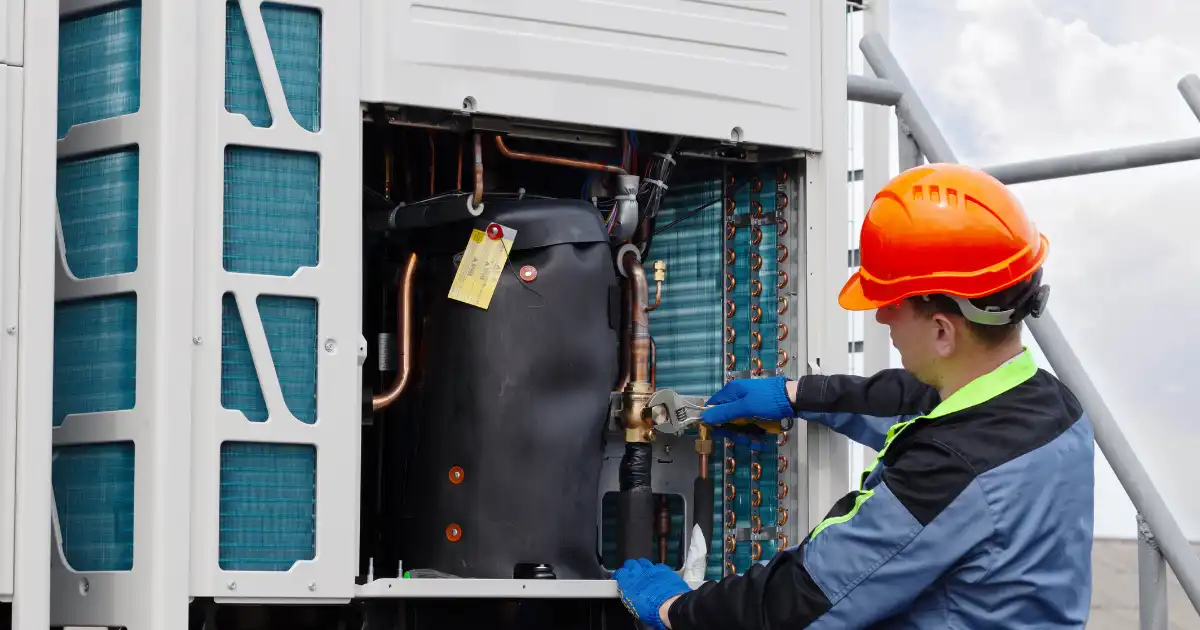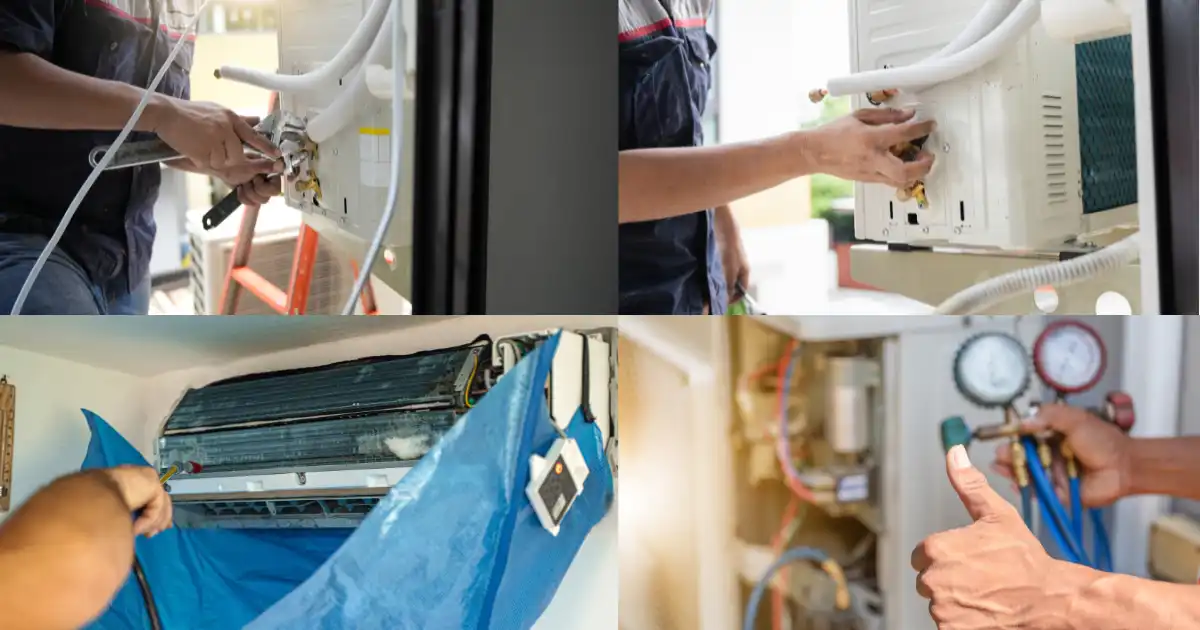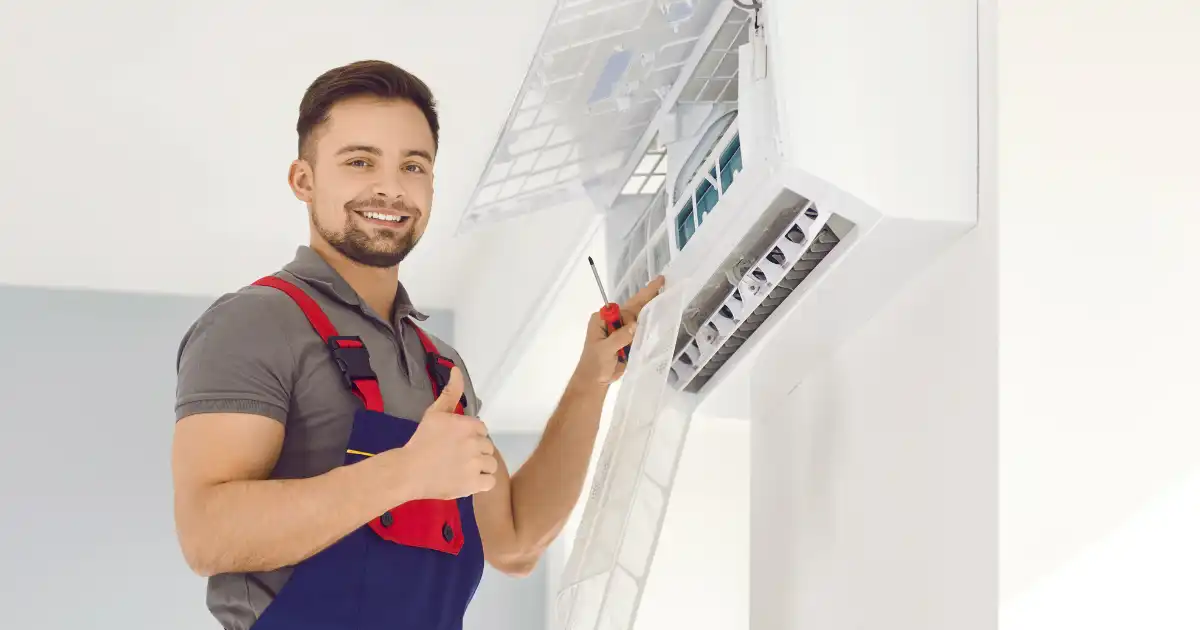Best HVAC system is one of the most important and expensive investments in your home. It’s about whether you rely the system to keep you cool, heat, or both, and making sure it’s operates efficiently all the time it will help to save money, cut the energy consumption and keeps your family members cozy throughout the year.
This comprehensive guide will cover all you need to be aware of to prolong the life of your heating system. The guide covers all aspects from important maintenance guidelines and smart use techniques to determining if it’s the right time to upgrade.
What Is a Best HVAC System?
HVAC is a term refers to Heating Ventilation and conditioning. HVAC is a term used to describe a unit which is responsible for keeping the temperature of your home at a comfortable degree, controlling humidity, and also ensuring high quality of the air in your home.

Main components:
- Air filters.
- Thermostat.
- The ductwork as well as vents.
- Air heat pumps and air conditioners.
- Condenser/Compressor to be used outdoors.
- The term “heat pump” or “furnace” is used to refer to the heating.
Cost of HVAC Maintenance by System Type
| System Type | Annual Maintenance Cost | Major Repair Cost | Replacement Cost |
|---|---|---|---|
| Central Air | $100 – $300 | $300 – $1,500 | $4,000 – $8,000 |
| Heat Pump | $120 – $350 | $400 – $1,800 | $5,000 – $12,000 |
| Furnace (Gas/Oil) | $80 – $250 | $200 – $1,200 | $3,000 – $7,000 |
| Ductless Mini-Split | $100 – $300 | $300 – $1,200 | $3,000 – $10,000 |
| Geothermal | $150 – $400 | $500 – $2,500 | $10,000 – $30,000 |
Maintaining your equipment on a regular basis is cheaper contrasted with major repairs and replacement.
Cost of HVAC Maintenance by Home Size
| Home Size | Annual Maintenance Cost | Replacement Cost (Full System) |
|---|---|---|
| Apartment/Condo | $80 – $200 | $3,000 – $6,000 |
| Small Home | $100 – $250 | $4,000 – $8,000 |
| Medium Home | $120 – $350 | $6,000 – $12,000 |
| Large Home | $150 – $400 | $10,000 – $20,000 |
Larger homes have bigger systems that require regular maintenance.
Factors Influencing HVAC System Lifespan
- The System Type: Geothermal system and the Heat Pump typically last longer than conventional furnaces and ACs.
- Quality of the installer: A poor installation could reduce the longevity of your site.
- Maintenance Schedule: Making sure that your vehicle in good condition will increase the life of your vehicle.
- Temperature: High temperatures as well as humidity can cause stress on systems.
- Air Quality: Pet hair dust and other contaminants can clog filters and other components.
- Power Surges: It Can damage electrical parts.
Essential Maintenance Tips to Extend HVAC System Life

1. Regular Filter Changes
- Filters should be replaced or cleaned every three to six months.
- Filters that block hinder airflow, which reduces effectiveness, and can cause stress on systems.
- Use premium filters for better Air quality.
2. Annual Professional Inspections
- Plan for an professional HVAC tune up each year or at the very least every year.
- Technicians check at leaks and worn parts and performance of the system.
- Early detection could stop the possibility of costly failures.
3. Cleaning Coils and Components
- Clean coils lower efficiency and power of cooling.
- A clean condenser as well as evaporator coils every year.
- Clean dust, debris and leaves that have fallen from outside units.
4. Checking and Sealing Ductwork
- Leaky ducts use up energy and cause discomfort.
- Check ducts for holes, gaps, or sections which is missing.
- Secure with mastic tape (not duct tape).
5. Thermostat Settings and Upgrades
- The thermostat should be set so that it conserves power (68degF in winter and 78degF during summer).
- Upgrade to an intelligent or programmable thermostat to have greater control.
- Be aware of the regular fluctuations in temperature.
6. Lubricating Moving Parts
- Motors, along with motors, bearings and fans require lubrication in order to lessen friction.
- Review the manufacturer’s guidelines or allow an expert to handle the task.
7. Keeping Outdoor Units Clear
- It is essential to ensure there are at least the distance of two feet between outside units.
- Remove any the debris, trim plants and make sure airflow isn’t impeded.
8. Monitoring Refrigerant Levels
- A low refrigerant concentration can reduce efficiency, and can be detrimental for the compressor.
- Consult an expert refill refrigerant as needed.
9. Inspecting Electrical Connections
- Wires that have become damaged or loose may cause system failures.
- Technicians must inspect the connections and make sure they are tight during every year’s maintenance.
10. Scheduling Seasonal Tune Ups
- Spring: AC tune up (clean coils, check refrigerant, test controls)
- Fall: The fall season is the perfect time to make adjustments to your heating system (inspect the heat exchanger and furnace check the heating, and make sure that safety controls are in place)
Smart Usage Habits for Longer HVAC System Life
1. Avoiding Overuse
- Don’t set your thermostat too low in summer, or to high in winter.
- Use ceiling fans to aid in the circulation of air and decrease the work of HVAC.
2. Using Ceiling Fans and Ventilation
- Fans are used to distribute air evenly and reduce the temperature difference between cold and hot areas.
- Make use of exhaust fans in kitchens and bathrooms to remove humidity.
3. Zoning and Smart Thermostats
- Zoning systems can allow for different temperatures to be used for different places.
- Smart thermostats are intelligent. They can learn your preferences and adjust automatically.
4. Managing Humidity
- Use a dehumidifier in humid climates in order to ease the strain on your AC.
- The humidity of your house should in the range of10-30 percent.
5. Keeping Vents Unblocked
- Do not restrict vents by rugs, curtains, furniture or even furniture.
- Cleanse the vents and registers frequently.
Signs It’s Time to Upgrade or Replace Your HVAC System
- It is approximately fifteen to twenty years old.
- Repairs cost need a lot or frequently fail.
- Rising energy bills despite maintenance.
- Uneven heating or cooling.
- Odors or strange noises.
- Air quality is poor or dust which is too much.
- Incompatible with thermostats using smart technology or zone control.
Pro Tip:
If the repair costs are more than 50% of the price for a brand new system replacement is generally the best choice.
How to Choose the Right Time and HVAC System for an Upgrade

- Check the performance of your current system as well as its the condition of your system.
- Compare repairs costs with. replacement costs.
- Find incentives and rebates on systems that are efficient.
- Choose the right size and design that fits in your room.
- Be aware of smart features and future demands (zoning or air quality).
- Get multiple estimates for licensed professionals.
- Be sure to go through the warranties and service agreements.
Environmental Impact and Energy Savings
- Efficiency based HVAC system units decrease the consumption of energy as well as their carbon footprint.
- Zones Smart thermostats and intelligent heating systems could lower energy bills by 10-30% percent.
- Regular maintenance keeps systems operating smoothly and efficiently.
- Recycling and the proper disposal of obsolete units is crucial to ensure the safety of environmental resources.
- Consider the energy STAR certified methods to reap the greatest savings.
Conclusion
To prolong the life of system to best hvac system, it’s important to maintain it regularly with a smart approach and understanding when it is time to upgrade. If you follow these guidelines that you adhere to you’ll enjoy secure comfort and lower energy costs along with peace of mind for the years to come. Don’t wait until your best hvac system has failed. Get started monitoring your hvac system now to safeguard your investment or take a guide from experts to prolong your actual system towards best hvac system..
FAQs
What is the suggested frequency to clean or replace the hvac air filter?
Every 3 to 6 months, depending on usage and the type of filter.
What’s the typical lifespan for best hvac system?
Most systems last around 10–20 years; geothermal and ductless systems can last even longer.
Can I do hvac maintenance myself?
You can change filters and clean vents, but regular professional maintenance is highly recommended.
How do I know if my hvac system is the right size?
A professional contractor will perform a load calculation based on your home’s size and layout.
Are smart thermostats really worth the investment?
Absolutely! They help reduce energy consumption and improve comfort by learning your habits.
What is the most efficient way to lower my hvac costs?
Regular maintenance, using smart thermostats, sealing ducts, and upgrading to high-efficiency systems are key.
Should I repair or replace my system to best hvac system?
If repairs are frequent or costly and your system is over 15 years old, replacement is often the best option.
How do I find a reliable hvac contractor?
Look for licensed, insured professionals with positive reviews and experience with your system type.
Can regular maintenance really prolong the lifespan to best hvac system?
Yes! Well-maintained systems last longer and run more efficiently.
Can I qualify for rebates to upgrade my hvac system?
Many utilities and states offer incentives for high-efficiency systems. Check your local area for available rebates.
